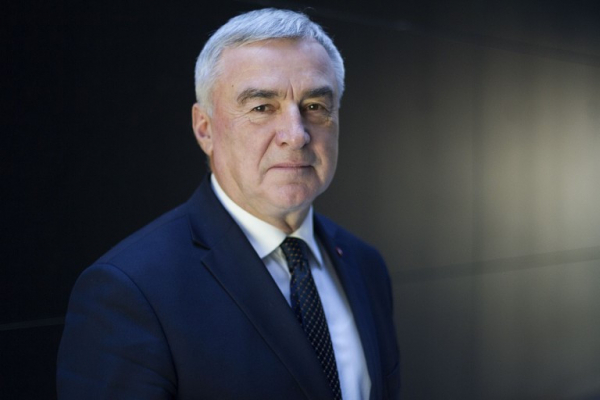
ECR Member Marshal Andrzej Bętkowski discusses implementation of the international KEEP ON project and shares some initial conclusions.
Marshal Bętkowski of the Świętokrzyskie region in Poland says that when they joined this international project three years ago, it was with "high hopes" about the possibility of sharing experiences, and of observing good practices and introducing them in the region. The KEEP ON project brings together partners from European countries with vast experience of successfully managing a rich cultural heritage.
The Marshal highlighted that the stakeholder group for the project in the Świętokrzyskie region included a few dozen organisations that manage cultural sites, such as the Kielce Village Museum, the Regional Science and Technology Centre in Podzamcze, the municipality and town of Chęciny, the National Museum in Kielce, the District Museum and municipal authority in Sandomierz, the regional House of Culture in Kielce, Opatów District, the Camaldolese monastery in Rytwiany, and Kielce Geopark. He added that each of these contributed their experience to the project, but also gained "valuable knowledge and practical tips about the efficient management of cultural sites, in particular their funding and effective use of EU resources to that end".
The KEEP ON project, which runs under the Interreg Europe 2014-2020 programme, is really an international venture whose partners include countries such as Greece, Spain, Italy, Portugal and Croatia. The Świętokrzyskie region is the only Polish partner in the project. Many meetings between partners, field trips and workshops have taken place under the project. Mr Bętkowski emphasized that the "international dimension allows a broad view of culture management so that the funding available to us to invest in this area is utilised to best effect". With every country having its own customs, "we can observe that each of the partners has its particular approach to cultural heritage management", he added. The ECR Member said that "we can each show each other ways of finding resources to make effective use of existing cultural infrastructure". He also underlined that it is worth applying best practice bearing in mind the start of the European Union's financial perspective for 2021-2027.
With the outbreak of the pandemic at the beginning of 2020, the Marshal discussed whether the good practices developed in the framework of KEEP ON were still relevant, and for him there is no better time to look at them: "protection of cultural heritage is an area in which we encounter many difficult challenges". Cultural sites must be flexible and must learn to respond to reality. He reiterated that "we should also remember that the pandemic will end at some point and we will return to normality: theatres, concert halls and museums will fill with people again". Many cultural sites are making major investments despite the pandemic, involving huge outlays that will be difficult to make returns on.
He concluded by saying that "the main thing is for cultural institutions to serve society and be widely accessible". It is important in the KEEP ON project that the public funding allocated for investment in cultural heritage be "spent wisely", basically so that projects in this sphere can be as financially viable and autonomous as possible. The Marshal said that the project will result in the drawing up of a Regional Action Plan within a transnational partnership, which will then serve as a tool to support the process for evaluating the Regional Operational Programme of the Świętokrzyskie region, also in the context of utilising EU funding post-2020.
The KEEP ON project – Effective policies for durable and self-sustainable projects in the cultural heritage sector – is co-funded by the European Union through the European Regional Development Fund under the Interreg Europe Programme, Priority Axis 4, Environment and Resource Efficiency.

